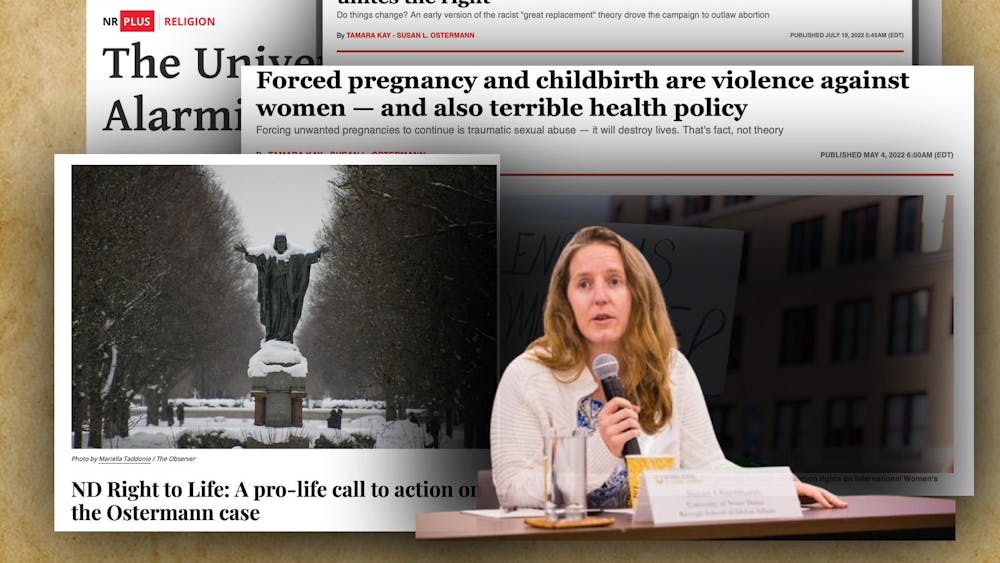Pope Francis tells us that it is the “moment to see the poor.” What does the Pope’s injunction mean for Notre Dame, especially now as Provost Marie Lynn Miranda has launched an important university initiative Moment to See, Courage to Act?Notre Dame has a long and enviable record of community service. Whether working for the homeless, or tutoring immigrants or assisting persons with special needs, Notre Dame students, staff and faculty have made the volunteer experience an integral part of the university culture. But is volunteerism enough? Does it enable students and faculty not only to serve the poor and vulnerable community but to learn alongside and with them, to see them as Pope Francis suggests? We write to propose that an elite university such as Notre Dame has a moral obligation to do more on behalf of the poor. Specifically, we believe Notre Dame must prioritize making our student body reflect much more closely the socioeconomic and racial diversity of the country.It is a common assumption that higher education is an engine for upward social mobility. Recent research suggests, however, that in the United States elite universities do more to cement income inequality and to retard social mobility than the opposite. To cite just one example, a child from the richest 1% of families is 77 times more likely than a child from the bottom quintile to attend an Ivy League or other highly selective college like Notre Dame. Elite universities, in other words, are more likely to perpetuate conditions of educational and economic inequality than alleviate them.Notre Dame has not been a leader in addressing these injustices. Far from it, we are sorry to report. According to a 2017 study by Chetty et al reported in the New York Times ranking elite universities according to the composition of the student body by family income, Notre Dame ranked 63rd out of 65 schools in drawing only 10% of the student body from the bottom 60% by family income; only Washington University of St. Louis and Washington and Lee University in Virginia had worse records. That number is less than 2/3 of what Notre Dame drew from the top 1% by family income (15.4%). More concerning is that Notre Dame also ranked 63rd out of 65 elite colleges in enrolling students from the bottom quintile by income, at 1.6%.To be fair, Notre Dame has been working to increase admission and enrollment of students from lower income families. Associate Vice-President for Undergraduate Enrollment Donald Bishop has shared with us that we are in the midst of an enrollment effort to elevate funding and institute activities to raise the percentage of Pell Eligible and/or First Generation students from 14% of the first-year class in 2019 to a goal of 20% within the next few years. We understand there are promising early results; the number of Pell students in the first-year class has increased by 60 in the past two years (a 33% gain), and the university is studying successful models for recruiting, supporting, and retaining lower income students. In addition, the university’s early retirement program has freed funds to increase financial aid. These are laudable efforts, but more is needed.The need is for change is acute, and it is time for the courage to act. Growing income inequality in the United States and increasingly rigid economic stratification belie Americans’ conviction that our country is the land of opportunity. A recent study by the World Economic Forum ranks the United States 27th in Global Social Mobility, behind not only the Scandinavian countries at the top and most other major industrial nations but also Malta, Estonia, Portugal, and Lithuania.Given our mission, given our institutional intellectual and financial wealth, and given Catholic social teaching, Notre Dame must do more. While the university is making strides, we still have a long way to go, and we need to focus our support on those who need it most. We need a shared public commitment to a preferential option for the poor, publicly stated goals, a public timetable, and faculty monitored annual review. Before we can say we truly see the poor, we must be in solidarity with them. That means opening our gates, sharing our resources, and learning from those who have historically been denied access to universities like ours. Only then can we live up to the challenge of Pope Francis’ compassionate command.
Stephen M. Fallon
professor, PLS and English
Clark Power
professor, PLS
John Duffy
professor, English
April 9









